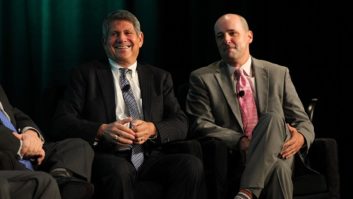Concerning Dave Wilson’s Jan. 1 commentary “We Should Buy Sirius XM Radio”:
Dave, I’m an XM subscriber and have been for six years. I have four active subscriptions, one in my car, one on a tuner hooked up to my PC, one for a tuner in the bedroom and one portable that I bought for my girlfriend. I’m also a stockholder (plenty of lumps taken there).
Your article has proven to me that you Just Don’t Get It.
Think about it for a moment. I have four radios that I’ve purchased. I’ve retired three other radios in those six years (replacing old radios with new models). Think of how much money I have paid to get away from the model that terrestrial radio provides.
To quote your article: “I think the answer to this is simple. We should model the business of the satellite operation after that of a cable company, except that we should forgo subscription revenue in favor of the advertiser-based model that has proven very successful not only for radio but for TV, Internet search, etc.”
What planet are you on? Traditional advertiser-supported models are dying on the vine, especially on TV (look at the ratings). Internet search was dying until Google came out with the idea of unobtrusive text-based ads that were easy to ignore but easy to follow if that’s what you were looking for.
You think that 20+ minutes of commercials on a radio station is unobtrusive?
I have paid thousands of dollars over the years to get away from terrible programming on terrestrial radio. I’m willing to continue to pay for music (and some other programming) that is unsullied by advertiser influences. I pay for uncensored comedy, cutting-edge and classic musical artists. Yes, I even pay for some talk where the ad breaks are just a couple of minutes an hour.
Right now, I am the customer Sirius/XM. They listen to me — their advertisers are secondary, since the majority of their income is from subscribers like me. In your model, the advertiser is the customer and I am the “product” — my ears to be delivered to them.
Yes, I pay for TV (I have a high-def satellite setup) and I pay extra for uncensored quality with no commercials. I buy DVDs for exactly that reason.
When I use Google for an Internet search, I trust that the results were not paid for — the paid ads are off to the side, where they belong.
Consider this: Do you think satellite radio would have nearly 20 million paying customers if the “free” services were worth it?
I used to love terrestrial radio. Living in the Boston area, I had plenty of great stations to listen to. Now I pretty much have a selection of restaurant and car dealership ads to listen to. It’s depressing.
It’s not like when I was younger and we were all glued to stations like WCOZ, WAAF, WBCN and WCGY for music. A couple of generations of kids grew up with radio and loved it. Then radio stations were treated like commercial profit centers and the “customer” tag went from the listeners to the advertisers. Why do you think kids are glued to their iPods instead of their radios?
I honestly hope for the day of a terrestrial radio renaissance. But it won’t happen as long as conglomerates continue buying up radio stations, firing all the local talent and running canned programming from their corporate headquarters, all the while claiming that satellite radio hinders local talent — the very local talent they fired.
David Long
Hudson, N.H.











